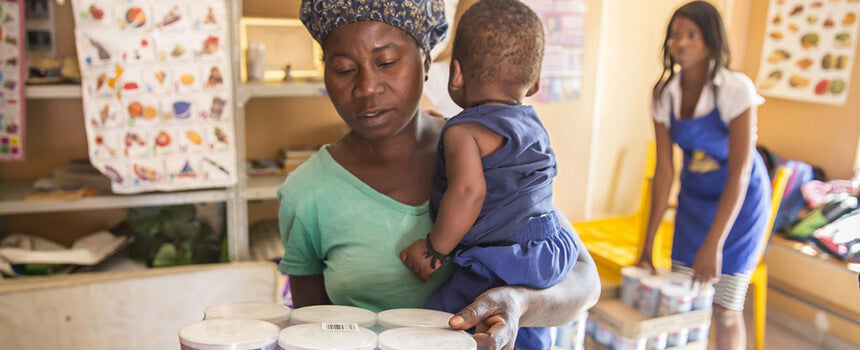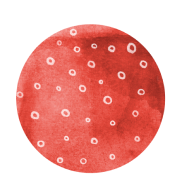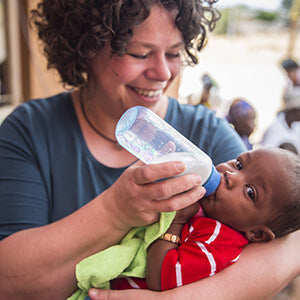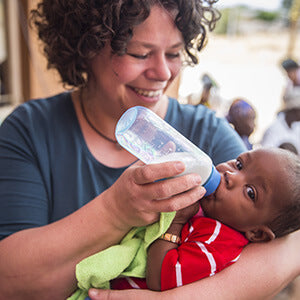Day 1
5 meals for the baby of an HIV patient in Namibia
 From the thirst for life
From the thirst for life


Milk powder protects the youngest children in Namibia from being infected with HIV

need
Milk powder as a breast milk substitute to protect HIV-negative babies of HIV-positive mothers from infection.
activity
The Mount Sinai Centre purchases powdered milk and distributes it to HIV-negative babies of HIV-positive mothers.
Measurable performance
Number of milk powder doses that HIV-positive mothers receive for their babies through donation.
Result
By administering milk powder, it is expected that approximately 200 babies will be protected from HIV infection each year.
Systemically relevant impact
Children in Namibia are given a better, sustainable future without HIV infection. A new and healthy generation is growing up in the country.
background


The good deed
AboutNamibia
Windhoek
Capital city
2 458 80
Population
5 041 USD
Gross domestic product
per capita per year

126
Human Development Index
(Human Development Index)



